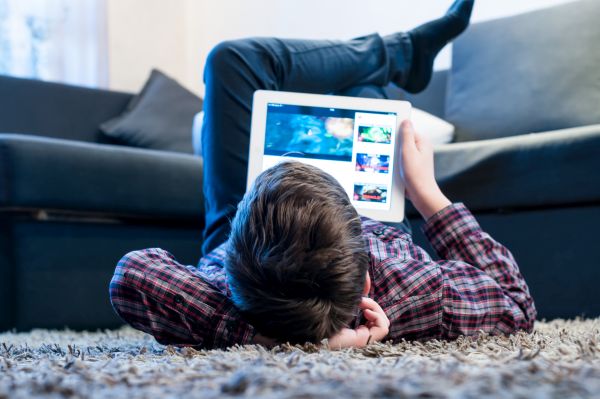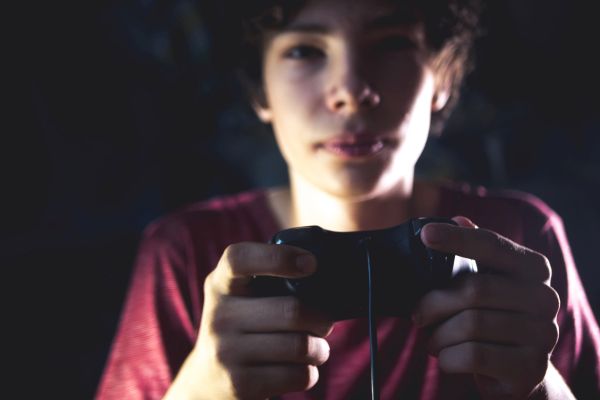Children as young as two are developing mental health problems as a result of excessive screen time, scientists have warned.
Research found that youngsters who spend hours looking at smart phones or tablets were more likely to become anxious or depressed.
The scientists from San Diego State University and University of Georgia found teenagers were most at risk, but even toddlers could be affected.
Even just one hour of screen time a day could have an impact, the researchers said.
They said it could mean children were less able to finish tasks, more likely to lose their temper and less able to calm down after getting excited.

Even just one hour of screen time a day could have an impact on a child's mental health
BACP member Chloe Goddard Mcloughlin, of Ranmoor Therapy, said parents need to be aware of how screen time could affect their children – but that there were simple things they could do to limit its impact.
“This technology gives us another way of avoiding ourselves. For children, it’s a suspended reality that doesn’t really attend to their needs. Underneath there may be a trauma or a problem that they are not dealing with,” she said.
“They may be getting a short-term dopamine hit from their screen time, but that could affect their attention span. It could mean children find it harder to watch a film.
“We need to help our children get to grips with resilience; help them look at their problems and find a way of solving them. Sometimes that could be the case of having a conversation around the dinner table.
“I think parents need to take a step back and look at their child’s life as a whole. Are children having time outside? Are parents encouraging their creativity? Parents need to have a common sense approach. This is not just about the child but the adult as well.”
Chloe has some tips for families to help mitigate the impact of screen time.
- Be a good example. Don’t spend all your time looking at your phone. As parents, this can send a message to your children that too much screen time is alright and reduces the conversations you have with them.
- Schedule time to sit down as a family to eat a meal. Talk to them at the dinner table. This social activity can be important.
- Think holistically about the child’s needs and what they need to thrive. Are they taking part in different activities as well as looking at tablets and phones?
- Set proper boundaries. Sometimes parents don’t want to be seen as a bad guy by implementing limits on screen time, said Chloe. There may be an initial backlash, but proper boundaries can help keep children safe.

Bullying taking place when children are alone in their bedrooms
BACP member Sarah Press looks at the problem of in-game bullying.

Steep rise in number of teenagers seeking help for anxiety
Anxiety is ‘endemic’ in young people, says BACP member Jane Darougar.

Children and young people
Read our members' experiences and your stories of how counselling can help children and young people.
